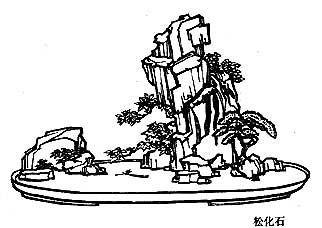論
語
Lun Yu 
 – The Analects of Confucius
– The Analects of Confucius
The Master discusses with his disciples and unveil his preoccupations with society. Tr. Legge (en), Lau (en) and Couvreur (fr).
Lunyu III. 4. (44)
The object of ceremonies should regulate them:– against formalism.
1. Lin Fang asked what was the first thing to be attended to in ceremonies.
2. The Master said, "A great question indeed!
3. "In festive ceremonies, it is better to be sparing than extravagant. In the ceremonies of mourning, it is better that there be deep sorrow than a minute attention to observances."
Legge III.4.
Lin Fang asked about the basis of the rites. The Master said, 'A noble question indeed! With the rites, it is better to err on the side of frugality than on the side of extravagance; in mourning, it is better to err on the side of grief than on the side of formality.'
Lau [3:4]
Lin Fang ayant demandé quelle était la chose la plus nécessaire dans les cérémonies, le Maître répondit : « Oh ! que cette question est importante ! Dans les démonstrations extérieures, il vaut mieux rester en deçà des limites que de les dépasser ; dans les cérémonies funèbres, la douleur vaut mieux qu'un appareil pompeux. »
Couvreur III.4.
Suatu pepatah ‘Pertanyaan yang sangat penting, peraturan, secara bersama-sama menjadikan seimbang dan kemewahan pula, keseimbangan sangat diperlukan, kehilangan keseimbangan mudah pula, keseimbangan sangat relatif sekali'.
b. Nabi menjawab : "Sungguh sebuah pertanyaan besar ".
c. "Di dalam upacara, daripada mewah menyolok, lebih baik sederhana. Di dalam upacara duka, daripada meributkan perlengkapan upacara, lebih baik ada rasa sedih yang benar".
善いことだと思ったらためらわずに実行し、善くないことだと思ったら熱湯に手を入れたかのようにすぐ中止することだ。
ものを見るときは、はっきりと見ようと思うこと。
人のことばは、よく聞き分けようと思うこと。
自分の表情は、おだやかであろうと思うこと。
自分の態度は、ひかえめにしようと思うこと。
発言にさいしては、誠実であろうと思うこと。
仕事をするさいは、慎重であろうと思うこと。
疑問にぶつかったら、探求しようと思うこと。
腹がたったときは、爆発させた後の事態を思うこと。
利益を前にしたら、筋が通っているかと思うこと。
(先天的に頭のいい者は「上の部」である)
学んでこれを知る者は次なり。
(学んで知識を得た者は、次のクラスである)
困(くる)しみてこれを学ぶはまたその次なり。
(ゆきづまってから、そこで初めて学ぶ気を起こす者は、さらにその次のランクである)
小人は天命を知らずして畏れず、大人に狎(な)れ、聖人の言を侮る。
青年時代は血気がまだ不安定だから、色欲を自重しなければならぬ。
壮年になると血気盛んになるから、闘争欲を自重しなければならぬ。
老年になると血気が衰え、物欲にとらわれがちになるから、これを自重することだ。

The Analects of Confucius – Lun Yu III. 4. (44) – Chinese on/off – Français/English
Alias the Lunyu, the Lun Yü, the Analects, les Entretiens du maître avec ses disciples.
The Book of Odes, The Analects, Great Learning, Doctrine of the Mean, Three-characters book, The Book of Changes, The Way and its Power, 300 Tang Poems, The Art of War, Thirty-Six Strategies
Welcome, help, notes, introduction, table.
Index – Contact – Top























